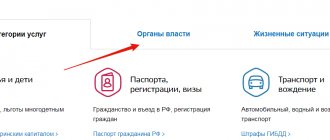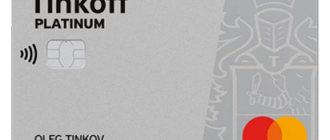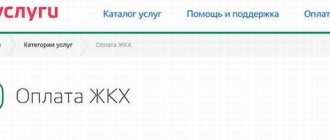The banking community opposed the bill banning commissions when paying for housing and communal services
Banks and payment agents have warned that they may close their services for accepting payments for housing and communal services due to plans to cancel commissions from the population. Utility companies are not ready to bear the costs of such payments either.
Photo: Yaroslav Chingaev / TASS
The United Russia bill, which prohibits banks, payment agents and Russian Post from charging clients commissions when paying for housing and communal services, could lead to a decrease in the availability of payments for the population, an increase in the price of other banking services and monopolization of the market. This is stated in the response of the National Council for the Financial Market (NCFM) to this document.
RBC got acquainted with the project, which was sent to the Duma Committee on Housing Policy and Housing and Communal Services. Now banks and management companies are arguing over who should bear the costs of these commissions, but deputies are not ready to change the bill.
How the authorities fight commissions
The main market participants are banks and payment agents, Alexey Zaikov, director of the company for accepting payments, explained the situation. Bank cash desks and online banking are used for transfers. If the bank has an agreement with a management company or resource supply organization (RSO), the payment commission is included in the total tariff for housing and communal services and falls on the client. If there is no agreement, the commission is paid by the client separately at the time of payment. In addition to banking services, services can be paid for with a commission through payment agents, Russian Post branches and cash desks of the resource supplying organizations themselves.
In Russia, there are about a thousand participants in the market for accepting payments for housing and communal services, excluding banks, continues Zaikov. According to him, in some territories Sberbank accepts up to 30–70% of payments, and in some areas payment agents collect a similar share.
The amount of commission charged by banks is on average 1% using remote banking services, 1.5% through an operational employee and up to 3% when paying through bank payment agents, who are paid a remuneration from the commission amount, the NSFR noted in its review.,>
In September 2021, the government, by its resolution, prohibited the inclusion of commissions for payment services in housing and communal services tariffs; the document will come into force in September 2021. The FAS, which initiated this measure, explained that the introduction of the ban should contribute to increased competition in this market. “There are known cases when resource supplying organizations, negotiating with a limited circle, for example, banks, included in the tariff the costs of transferring citizens’ payments for utility services at non-transparent and inflated prices,” the FAS noted. And if citizens paid for housing and communal services in other banks, they paid the commission twice: in the bank itself, with which no agreements were concluded, and as part of the tariff.
In February 2021, the leader of the United Russia faction, Sergei Neverov, spoke at a meeting with the President of Russia with the idea of banning banks and payment agents from collecting commissions for transactions to pay for housing and communal services from the clients themselves. Vladimir Putin supported him, calling the commissions a quasi-burden. On February 20, the bill was introduced into the State Duma; its first author is listed as speaker Vyacheslav Volodin. The document should help protect the interests of citizens and lead to a reduction in the financial burden of the population, the explanatory note notes. This bill could be introduced so that banks, due to a prohibitive government decree, would not pass on all their costs to clients, explained two RBC sources familiar with the discussion of the document.
Deputies of the Communist Party of the Russian Federation introduced a similar bill at the end of January.
Step-by-step instructions for paying for housing and communal services
Before making a payment in the “Personal Account” of a Sberbank client, you must register in the system. To register, the user will need a Sberbank plastic card and a mobile phone linked to the plastic product using.
“Personal Account” was created only for holders of Sberbank bank cards. If the product is not available, the client must contact the nearest branch with a passport to issue a plastic card. Features, types and costs of cards are described on the company’s official website.
If the card is not connected, the account holder must link a mobile phone to access Sberbank Online. You can connect your mobile bank in several ways:
- in terminals and ATMs;
- in the "Support Service";
- upon a personal visit to a bank branch (passport required).
The fastest way is to bind through a network of terminals. The service is activated instantly.
Registration in the Sberbank Online system
If you have a card and Mobile Bank, you need to type “Sberbank Online” in the search bar, or go to the service page from the bank’s official resource. Instructions for activating the service:
- In the window that appears and go to the data filling page.
- Enter the card number without spaces (16 or 18 digits on the front side of the plastic product). Next, enter the code from the picture (check for “robots”), click “Continue”.
- After this, you should receive an SMS password on your phone, which you should enter in the line without spaces, and also click “Continue.”
After entering all the necessary details, the user will be taken to a form to fill out a login and password. You should come up with a combination of numbers and Latin letters that will not be repeated one after another or alternate.
Important! It is recommended to avoid simple and popular combinations such as "123456789" or "qwerty".
Such passwords are most often hacked by scammers. It is recommended to use a combination of numbers and symbols at the same time, using large and small letters that the account owner can easily remember (for example, a memorable date + the name of a favorite fruit in Latin).
Authorization in “Personal Account”
To log into online banking, the user must enter a login and password , as well as a one-time password, which the bank will send with each authorization via SMS. The validity of the password is limited; if the SMS notification does not arrive within 5 minutes after entering the data, it is recommended to send the word “HELP” to the short number “900” to check the relevance.
Users who have connected any of the Mobile Bank packages - both full and economical - can log into the system.
After entering the password from SMS, the client is taken to the main page of the service.
Money transaction
Funds can be transferred to the client’s housing and communal services provider’s account through the “Transfers and Payments” tab. By clicking on it at the top of the menu, the user will be taken to the payment page.
Instructions for paying utility bills online from Sberbank:
- Selecting a payment region. Any supplier operates in a specific territorial unit.
The region selection is located next to the “Payment for services and purchases” designation (in the center of the page). By clicking on a region, the client will automatically filter out all companies operating within the desired payment location. If it is not known in which region the supplier operates, you can select “All regions” - the search will be carried out taking into account companies from all over Russia. - Search for a supplier. You can find a company in 2 ways: by TIN, name or service provided. A list of all services of public utility organizations is in the list “Housing and communal services and home telephone” (on the left, second section).
For example, Gazprom supplies gas, so to select a company you should click on the “Gas” subsection and find the company of interest from the list.Searching by type of service provided is not always effective, since the payer may incorrectly indicate the type of housing and communal services, which will take some time when selecting data.
An alternative, faster option is to search for suppliers using the organization’s TIN. To do this, enter the TIN without spaces into the search bar (immediately after the name “Payment for services and purchases” and the selected region). Using the TIN, the system automatically filters out “extra” utilities, offering only companies with an identical taxpayer number for payment.
When searching using a TIN, the payer may be offered several types of services from the same provider. For example, rent and paid services (coded lock, payment for the elevator and cleaning at the entrance).
You need to select the desired payment type yourself using the data in the receipt.
- Entering a personal account. The invoice helps you find out information about the exact address of the payer and the amount required for payment in the current period. It is recommended to enter the personal account as required in the input line.
If the count is less than 3 digits, you should press the zeros to the desired minimum value before starting (for example, 000123 if at least 6 digits are required). Sometimes the site code is indicated on the receipt after the personal account; it is typed without spaces immediately after the client’s personal account.A hint on how to enter and where to look for a personal account is ALWAYS in the dialing line. To activate it, click “Sample receipt”.
- After entering your personal account, you need to indicate the amount, meter readings (if any) and confirm everything via SMS .
The size of the commission is determined automatically after entering the personal account and amount.
Transaction confirmation
After entering the password via SMS, the payment is sent for processing , and a stamp indicating “Payment accepted for processing” will appear on the screen. When the funds are transferred, the stamp will change to the word “Completed”.
All information is stored in the “Transaction History”, where the client can print receipts by clicking on the payment date and the “Print” button at the bottom of the electronic document. The receipt will be printed if a printer is connected to your computer or laptop.
Clients can receive confirmation at the bank’s office , with access to an Internet kiosk. To do this, ask the consultant to print receipts for the required period.
The Sberbank Online system allows you to make payments in favor of housing and communal services without visiting bank offices. The commission for payments is only 0-1% of the amount, and does not exceed 1 thousand rubles. Payments are accepted in favor of all suppliers specified in the system.
If the client does not find the required company in the database, he can transfer funds independently by selecting a set of details at the bottom of the page (an organization account, INN and BIC, as well as a full legal name are required).
What will the ban lead to?
The introduction of a ban on charging commissions when paying for housing and communal services threatens banks with losses, and they will be forced to take measures to optimize business processes, which will be followed by negative consequences for clients, warn the National Financial Markets Service, which includes the majority of systemically important banks:
- some banks may leave the market for accepting payments for housing and communal services, which will reduce the availability of the service for the population and entail further monopolization of this segment, as well as lead to a decrease in the quality of the service and an increase in queues;
- acquiring banks will be forced to stop accepting transfers for housing and communal services using cards issued by other banks, due to the need for them to pay compensation that is now not compensated to the issuing bank;
- bank payment agents may leave the market or reduce the quality of service, since the bank’s lack of income from these operations will lead to a forced reduction in the commission paid to agents;
- The banks remaining in this market can begin to provide this service at the expense of income from the provision of other services - by reducing interest on deposits, increasing interest rates on loans and increasing tariffs for types of financial services that are important for consumers, including transfers in the Faster Payments System;
- banks will be forced to reduce investments in fraud prevention systems, which could lead to an increase in thefts.
Commission for paying for housing and communal services at the post office
Interaction with postal services is a traditional method of paying housing and communal services for the entire population of the Russian Federation. Today, in the absence of an agreement with Sberbank or the Bank of Moscow, payers contribute from one to three percent. Despite this, this method is very popular, especially among the adult population. Advantages of postal services:
- reliability and speed of translation;
- possibility of cash payment;
- guarantee of receiving a receipt as proof of payment;
- the optimal price for a financial transaction.
The transfer of funds is carried out the next day after the transaction. The maximum transfer period is three days from the date of transfer. Despite all the advantages, this method also has a number of disadvantages compared to modern online means of making financial payments. This method is mainly used by citizens who receive wages or pensions in cash. When receiving income on a bank card, it is not advisable to use the post office.
What banks warned the Central Bank about
On February 27, the Association of Banks “Russia” held a meeting of the banking and payment communities with representatives of the regulator, at which employees of credit institutions warned the Central Bank about a possible reduction in the infrastructure for accepting payments for housing and communal services and put forward their proposals on how to mitigate the consequences of the bill, three financial sources told RBC market close to the meeting participants. According to one of the interlocutors, the ban will primarily affect Sberbank, VTB and Pochta Bank. The overwhelming share in the market for accepting payments for housing and communal services is occupied by the former with an indicator of about 60%, notes another source.
The ban on commissions should apply only to cases when utility service providers compensate them to banks, says Mikhail Shchipkov, managing director of the transaction business department of Otkrytie bank: “If this is not taken into account in the bill, then, obviously, there will be no point in concluding acceptance agreements payments between banks and housing and communal services providers, all existing contracts will be terminated, banks will continue to bear the costs of accepting payments, but will no longer receive compensation. As a result, banks will think about options to reduce costs, including limiting the acceptance of payments in channels with high costs (bank branches - RBC).”
MKB and PSB do not expect that the adoption of the bill will affect the availability of their services, representatives of credit institutions said. Sberbank, together with the expert community, formulated proposals on how to adjust the bill, its press service reported, without specifying details. VTB declined to comment; other large banks did not respond to RBC’s requests. Russian Post refrained from commenting. The Central Bank and the Ministry of Construction did not respond to RBC’s requests. The FAS reported that the position of the service will be formed only after the specified proposals are received there.
Find out why the debt has accumulated
Timely and full payment of housing and communal services is the responsibility of the owners of premises (Article 153 of the Housing Code of the Russian Federation). This obligation arises from the moment of registration of ownership of the premises.
Owners of apartments and non-residential premises do not always take responsibility for paying for housing and communal services. The reasons for non-payment of bills may vary. Some owners accumulate short-term debt due to the fact that they were temporarily absent from the premises and did not receive payment documents. For example, you were on a business trip or were treated in a medical facility.
Other residents do not pay their bills systematically and accumulate huge amounts of debt. Some believe that the management organization is not properly fulfilling its responsibilities, others believe that natural resources belong to all citizens on equal rights.
Depending on which group the debtor belongs to, the management organization can choose a mechanism for debt collection: awareness-raising, claims work, restriction or suspension of the provision of utility services. Let's discuss the basic techniques of each debt collection mechanism.
How to register partial repayment of debt for housing and communal services
How to compensate expenses
As Alexey Voylukov, vice-president of the Rossiya Banks Association, told RBC, banks have developed two proposals to compensate for the costs of making payments.
Firstly, to change the autumn government decree so that bank expenses for making payments are included in tariffs on the same basis as expenses for making cash payments through the cash desks of resource supply companies - the decree did not prohibit their inclusion in the tariff.
Secondly, develop and include in the bill a scheme in which the payee's bank (management company, homeowners' association, resource supply company) will compensate the costs of making the payment to the sending bank. This is necessary because the sending bank, if the bill is adopted, will not be able to charge a commission from the payer. The receiving bank, in turn, receives such compensation for expenses under the agreement from the management company or resource supplying organization. But the question remains open whether this commission will be taken into account in the tariff or whether companies will pay it from their profits.
Outreach
A common way to motivate a resident to pay bills is to charge a penalty. Notify the debtor in writing that you are forced to charge him a penalty for late payment of housing and communal services. Explain that payment for residential premises must be paid no later than the date established in the management agreement or determined by the decision of the general meeting of owners of premises in the apartment building (Part 1 of Article 155 of the Housing Code of the Russian Federation).
If the management agreement or the OSS have not determined the date for payment of payment for housing and communal services, then the last day of the payment period is considered to be the tenth day of the month (Article 190-192 of the Civil Code of the Russian Federation). Payment will be considered overdue from the eleventh day in accordance with paragraph 30 of the resolution of the Plenum of the Supreme Court of the Russian Federation dated June 27, 2017 No. 22.
There are residents who do not understand how the amount on the receipt is calculated, so they do not pay their bills. In this case, the debtor can be called and invited to an appointment with the head of the management organization or the chief accountant. During the conversation, tell the owner that non-payment of bills leads to the accrual of penalties, and failure to transmit meter readings leads to the accrual of amounts in receipts according to the standards.
Another option to resolve the problem peacefully is to enter into a debt repayment agreement with the debtor. This way, the consumer will be able to avoid restrictions and suspension of utility services and repay the debt in a manner convenient for him.
Tell the debtor about the terms under which you propose to enter into an agreement to repay the debt. Specify in the agreement:
- validity,
- consequences for violation of obligations,
- details of the parties.
Offer the consumer to choose how to pay the debt: in a lump sum or in installments. If the owner is ready to repay the debt in one payment, include in the agreement the amount of the debt, the period of its formation and the expected date of payment.
Not the most common way to work with debtors for housing and communal services is to offer the owner to work off the debt. Working off a debt instead of paying housing and communal services is considered a change in the payment method provided for in Art. 409 of the Civil Code of the Russian Federation. The most convenient in this case is considered to be a mutual agreement concluded in writing in accordance with Art. 161 Civil Code of the Russian Federation.
Find out how to calculate penalties
Enrollment deadlines
When paying bills through Sberbank ATMs, individuals must take one point into account: funds can be credited to recipients from a few minutes to 3 days.
With this method of paying for utilities, the countdown will begin from the moment money is written off from the Sberbank client’s card account or the self-service device accepts cash. The following factors may affect the time it takes for funds to be credited to recipients’ accounts:
- Money transfer status. For example, funds are transferred within one locality, within the country or abroad.
- The details are incorrect or incomplete.
- The client transfers money not to the card account, but to the recipient's current account.
- There was a technical failure in the ATM/terminal or in the entire Sberbank system.
Procedure if money has not been received after payment
In the event that a payment made through ATMs or terminals does not reach the recipient, an individual needs to act in the following sequence:
- Initially, you need to check all the details that were indicated in the receipt form.
- If all the information in the payment slip was entered correctly, you must go to the nearest office of the financial institution along with the payment slip and contact an employee. The specialist will check the payment transaction and inform the client of the reason for the delay in payment.
- In the event that an individual has indicated incorrect data on the receipt form, he will have to write a statement addressed to the management at the office of the financial institution, in which he must set out the situation in detail.
READ Payment for school meals through Sberbank Online using your phone
If the Sberbank branch reports that the money was credited to the recipient’s account in a timely manner, the client must contact his housing office. Most likely, his payment was mistakenly credited to another person's personal account.










